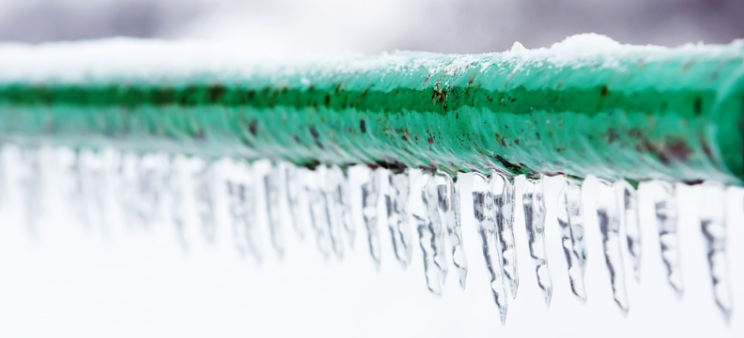We have seen the first flurries of sleet and snow this year and it looks like the current cold conditions are here to stay. The cold snap may see a sharp increase in frozen pipes. Here, Kevin Wellman, CEO of the Charted Institute of Plumbing and Heating Engineering (CIPHE) offers advice to avoid potential problems over the winter period.
The last thing anybody needs this time of year is for their central heating or boiler to pack up. Your pipes are likely to have some water in them, even if your taps aren’t turned on. When temperatures drop below 0°C, the water within exposed or uninsulated pipework is susceptible to freezing. This could leave you with limited water supplies as well as leading to boiler damage, cracked or burst pipes, and substantial leaks. The average cost of repairing household damage due to leaks caused by burst pipes is estimated to be nearly £13,000 so, even in a milder winter, it’s better to be safe than sorry.
Warning signs for frozen or burst pipes:
- Lack of water coming out of outlets including taps and showers
- Central heating making a gurgling sound
- Heating systems in lockout/shut down
- Your boiler won’t switch on
- The toilet will not flush
When water freezes it can impact structural integrity, leading to burst pipes. The main signs of a burst pipe are puddles, damp patches or large pools of water in multiple areas.
How to prevent frozen pipes:
- If you have a smart thermostat, use the anti-frost setting to prevent pipes from freezing
- Turn your heating on - the price of frozen pipes is significantly higher than the cost of heating your home!
- If your radiator valve has a snowflake symbol, set it to a minimal flow between pipes and radiators
- Locate internal stoptap/stop-valve is and ensure it’s in working order – try to check it still functions every six months
- Get your boiler serviced regularly
- Install pipe insulation if you’ve not already done so
If you’re leaving your home unoccupied for a prolonged period:
- Turn off water supply via your stop-valve
- Open the taps and run off any remaining water
- Drain the pipes to make sure they are completely empty
Solutions for frozen pipes
- Turn off your water mains using your stop-valve
- Locate the frozen pipe
- Thaw out pipes slowly using a hot water bottle or heated towel/cloth, starting at the end nearest the tap
- Avoid using boiling water or naked flames for thawing as there could be unnoticeable splits in the pipe or flammable materials
- Only attempt to thaw pipes that are easily accessible and/or at ground level, and always
Solutions for burst pipes
Do not touch electrics if these have been affected by water and turn them off via the fuse box /consumer unit box. Then, once you have turned off the water supply, seek the assistance of a plumbing professional. Similarly, if you don't know where the frozen pipes are or you can't access the area but suspect that you may have frozen or burst pipes, it is best to call a plumber for assistance.
You can find a high-quality plumbing and heating expert online via the Chartered Institute of Plumbing and Heating Engineering’s find a plumber or heating engineer tool.

